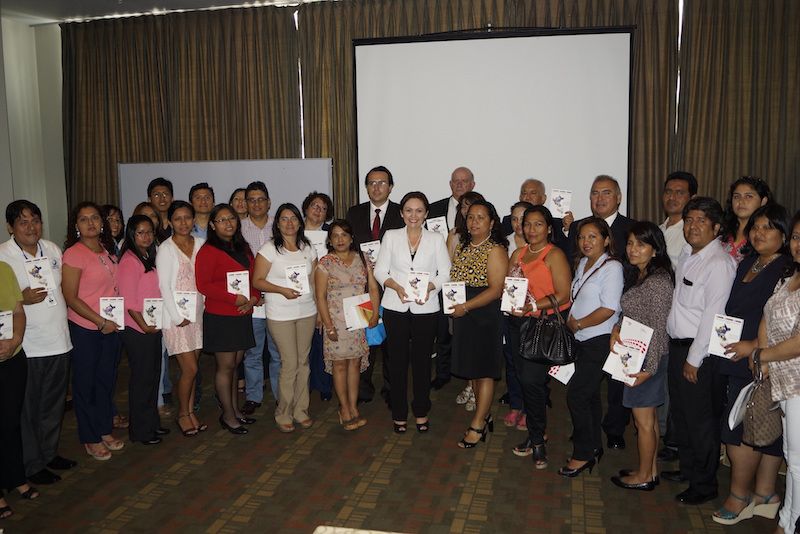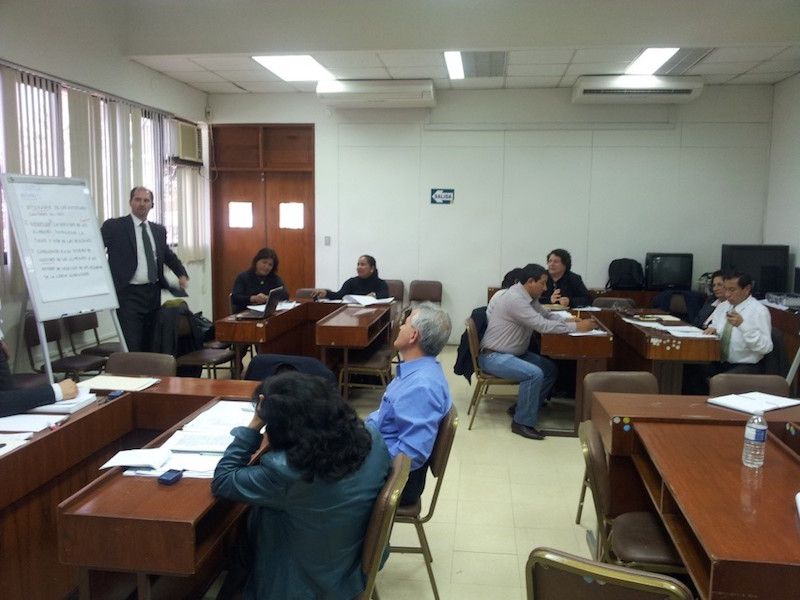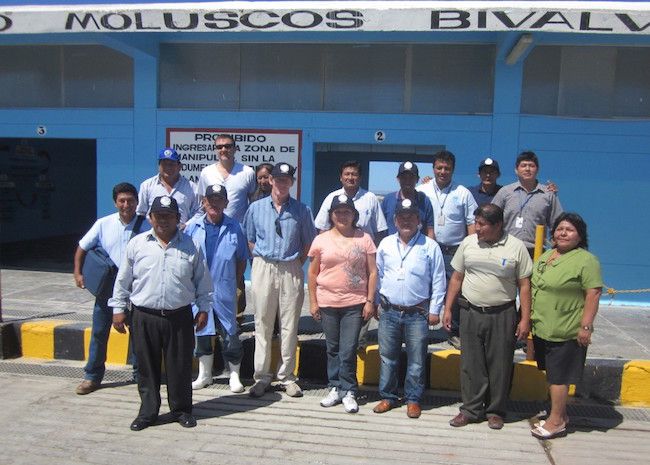By continuing to use our site, you consent to the processing of cookies, user data (location information, type and version of the OS, the type and version of the browser, the type of device and the resolution of its screen, the source of where the user came from, from which site or for what advertisement, language OS and Browser, which pages are opened and to which buttons the user presses, ip-address) for the purpose of site functioning, retargeting and statistical surveys and reviews. If you do not want your data to be processed, please leave the site.
Canada Americas Trade Related Technical Assistance (CATRTA) Program – Peru Food Safety Capacity Building
Winner, Global Silver Award and Canadian CMC Project of the Year (2018)
This mini case study is part of an ongoing series profiling Winners and Runners-up of the 2018 Canadian CMC Project of the Year Award, showcasing Canada’s best management consulting engagements. Winners have been nominated for an international Constantinus Award.
Project Lead: Michael Ennis CMC, TDV Global Inc.
Background – The Challenge
CATRTA was designed to meet the needs of Canada and Canadian Free Trade Agreement (FTA) partner countries in the Americas. The focus of this project was to address specific capacity weaknesses regarding sanitary and phytosanitary (SPS) measures and food safety, and to support the Government of Peru in better integrating and consolidating its food safety system to facilitate international trade and ensure domestic food safety.
The project worked with the three Peruvian food safety authorities and key members of the Permanent Food Safety Committee (COMPIAL). Those departments are the Ministry of Health and its Directorate of Environment Health (DIGESA), the Fisheries Technology Institute (ITP) and its National Fisheries Health Service (SANIPES), and the National Agricultural Health Service (SENASA) under the Ministry of Agriculture. COMPIAL was formed under new legislation to integrate and harmonize Peru’s food safety system. Technical assistance delivered by TDV consultants helped maximize the opportunities and benefits of increased trade and investment through Peru’s bilateral FTAs with Canada and thus contributed to the reduction of poverty and the promotion of sustainable development.
Engagement Review – The Solution
Starting Point
Upon finalizing an FTA with Peru, the Government of Canada offered support through the CATRTA program, administered by the Conference Board of Canada. CATRTA was active in Peru, Colombia, Honduras and the Caribbean. TDV Global executed sub-projects in Peru and Honduras.
The objective of this project was to support the Government of Peru in better integrating and consolidating its food safety system to facilitate international trade and ensure domestic food safety.
STRATEGY
A planning workshop with food safety authorities to develop a strategic plan for achieving an integrated food safety system.
TDV’s approach to international technical assistance and capacity building relies on a participatory approach in needs assessment and planning. This project utilized such an approach to identify priority areas for capacity-building assistance. Based on diagnostic missions and facilitated strategic planning, the project focused on six project activities, utilizing a mix team approach, combining technical subject matter expertise with the international project management and capacity-building expertise. In this case, that generally meant two-person teams on most of the project’s missions.
IMPLEMENTATION
One of TDV's work packages was conducting a practical exercise in food safety risk analysis in Sechura, Peru.
Implementation was organized into six discrete work breakdown elements: (1) strategic planning for COMPIAL; (2) practical exercise in food safety risk analysis; (3) supporting food safety laboratory integration; (4) harmonized food plant inspection system; (5) risk communications; and (6) food traceability. The project was implemented, monitored, and reported against a result-based framework.
The Results
Key project results included:
- COMPIAL adopted the Strategic Plan and continues to use it to guide its programs;
- The exercise in risk analysis resulted in the ITP (In English: Fisheries Technology Institute) establishing a regional office in the area where the study was conducted;
- A 3-day conference on harmonized food inspection, HR competency profiles, a manual adopted by the three departments, training of trainers and follow-up monitoring of trained inspectors. Over 80 food inspectors trained on the new procedures.
- An assessment report on risk communications, risk communication training provided to 24 participants, risk communication plan approved and its implementation started; and
- A pilot food recall exercise was conducted that identified gaps and recommendations on traceability provided to government and industry.
Beyond the primary objectives, the project contributes to an improved food safety system that protects the health of Peruvians and supports the economic growth and competitiveness and quality of Peru’s food exports to Canada and other markets, leading to safer food supplies and reduced poverty in Peru. Outcomes achieved by the client (COMPIAL) include:
- Increased awareness by Peruvian officials of the management of food safety systems at the national and regional levels;
- New policies, regulations, procedures, and protocols for integrated food safety system; and
- Trained national and regional government officials on new regulations, procedures and protocols for harmonized inspection.
Following are testimonials from COMPIAL clients:
“This [project] will guide us toward consolidation of the National System of Food Safety for Peru.”
“Training and updating of food safety inspection activities ....has harmonized the criteria for food inspection at the three authorities.”
“Integrating the testing laboratories of COMPIAL has strengthened the performance of their analysts.”






